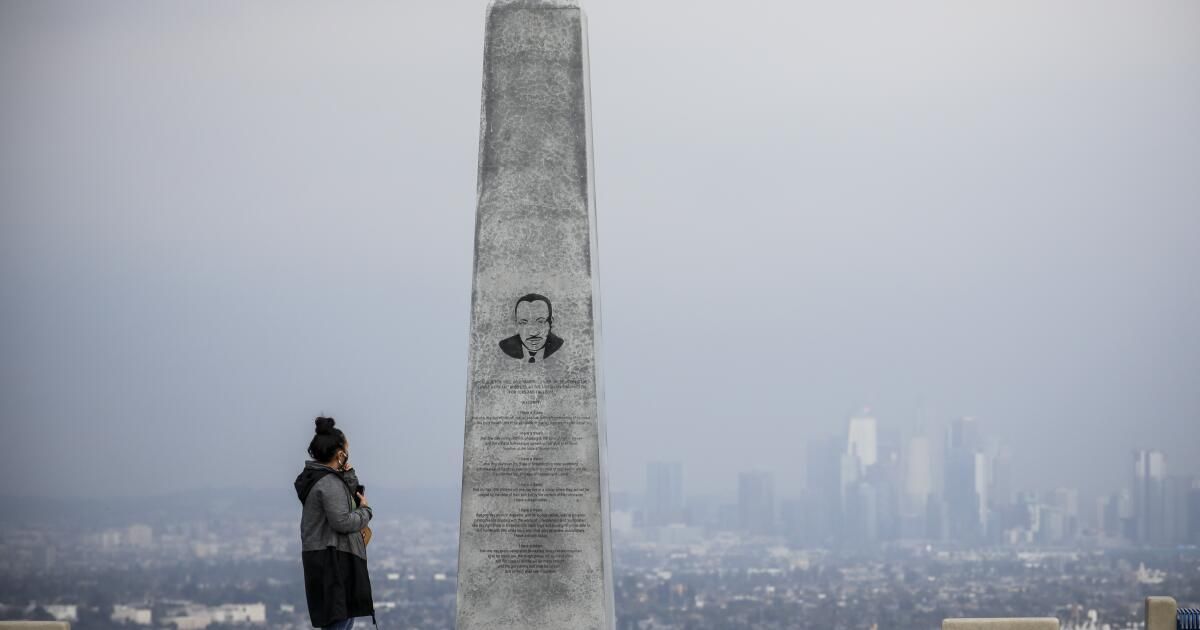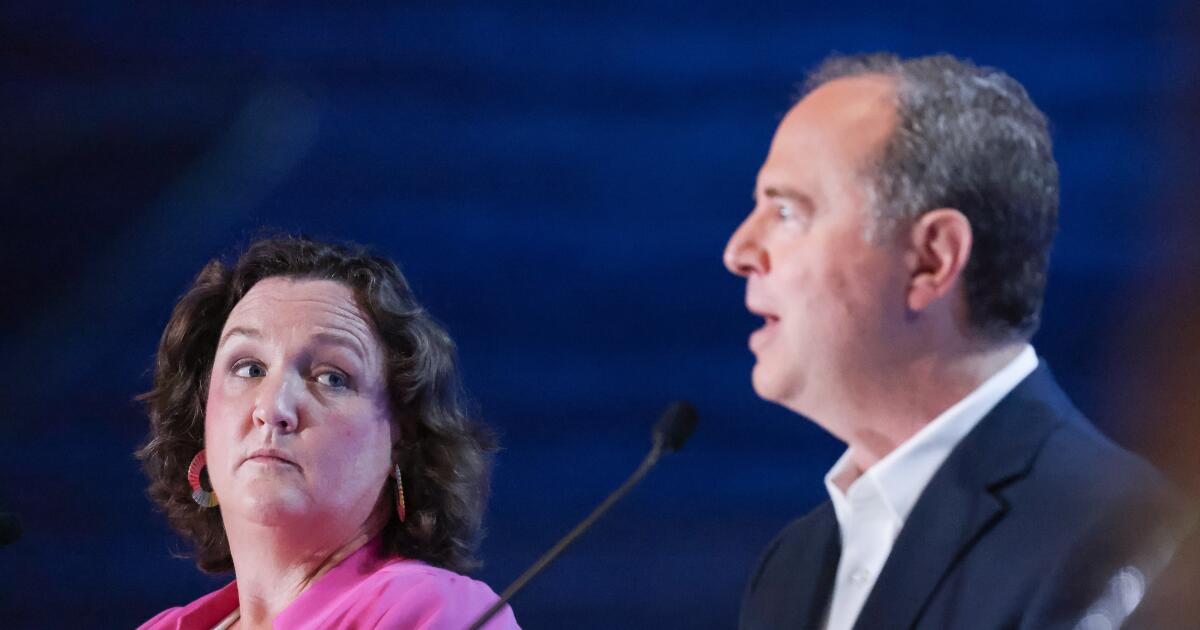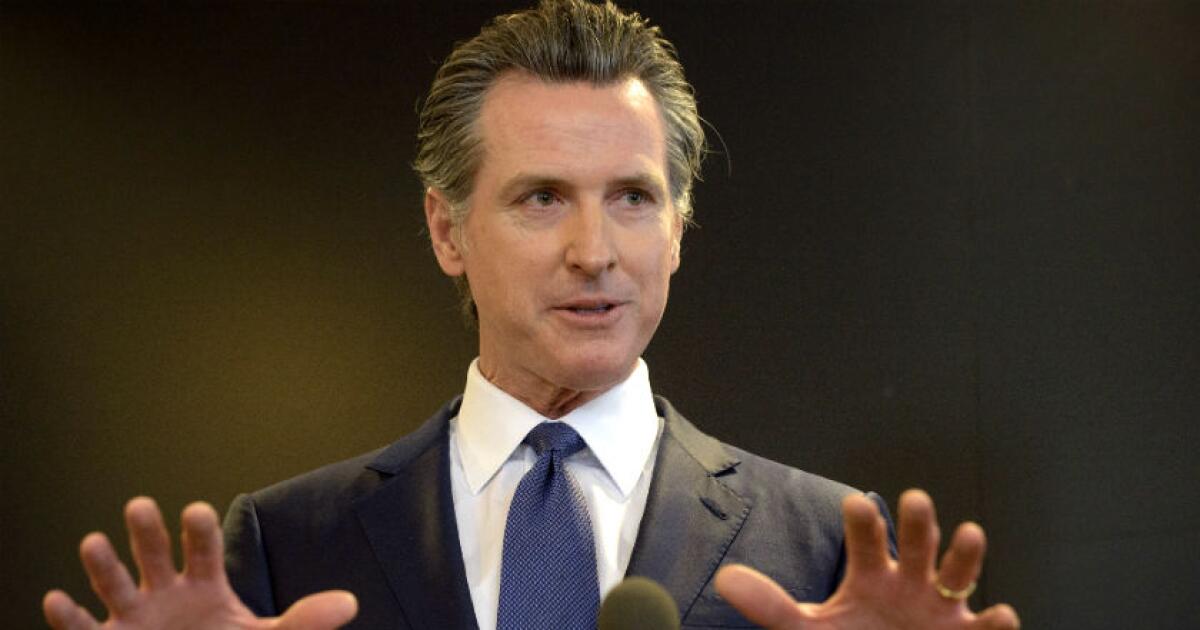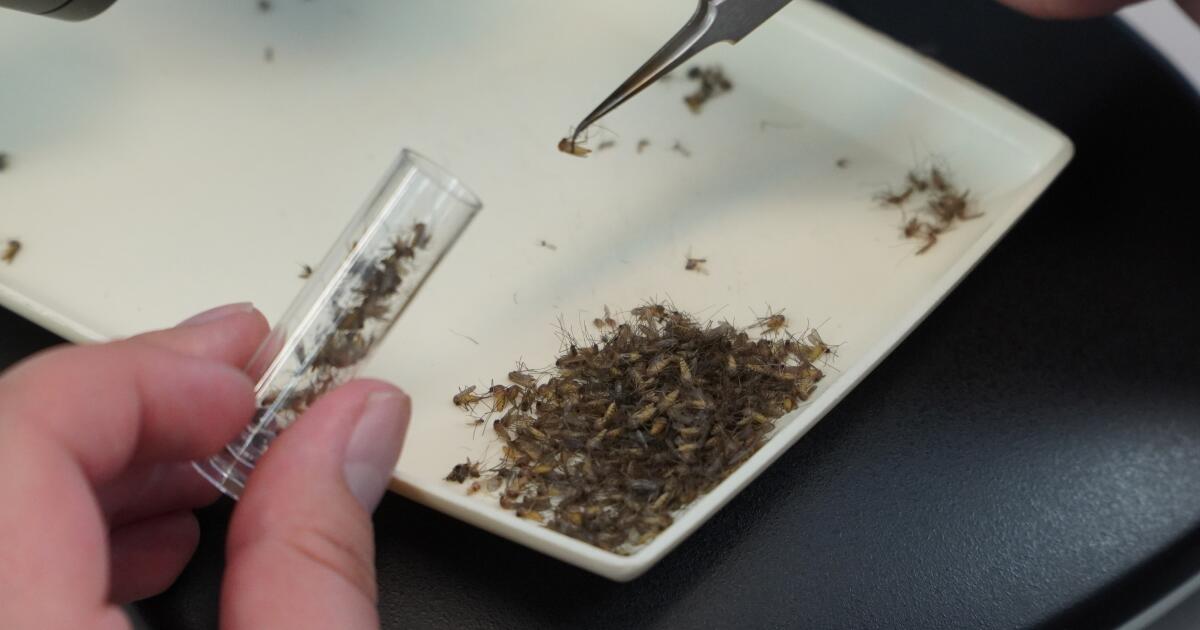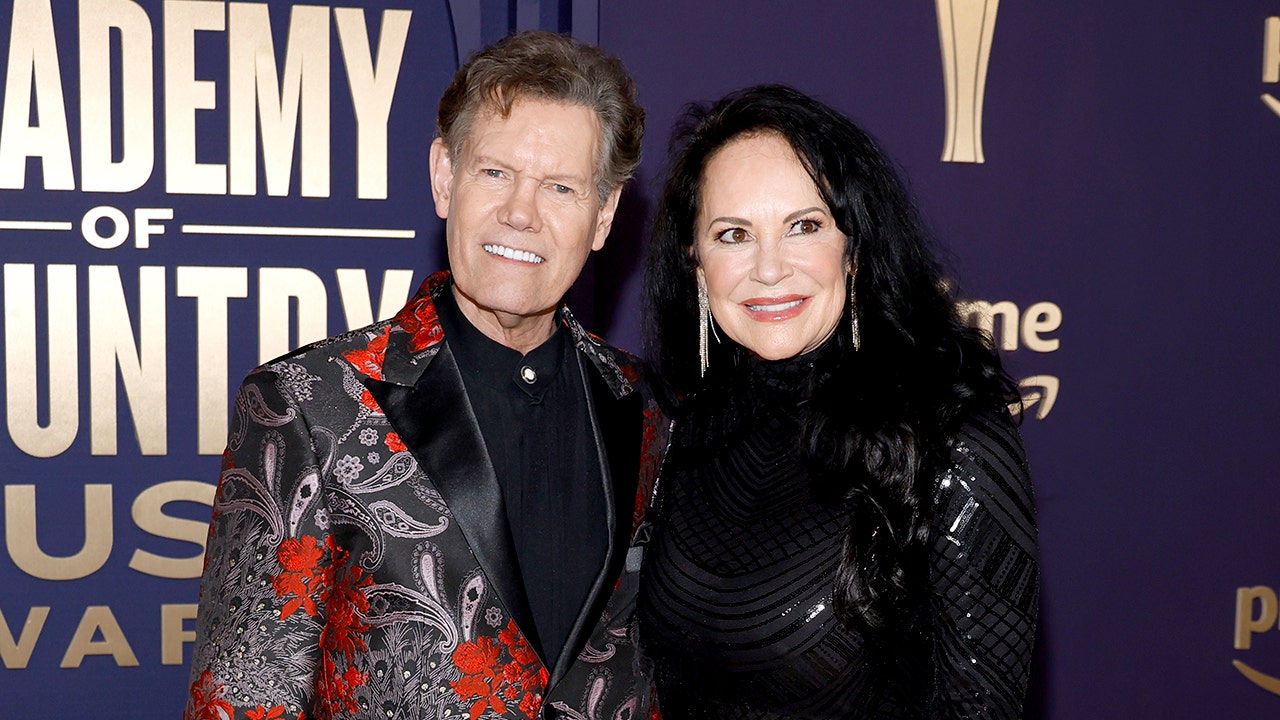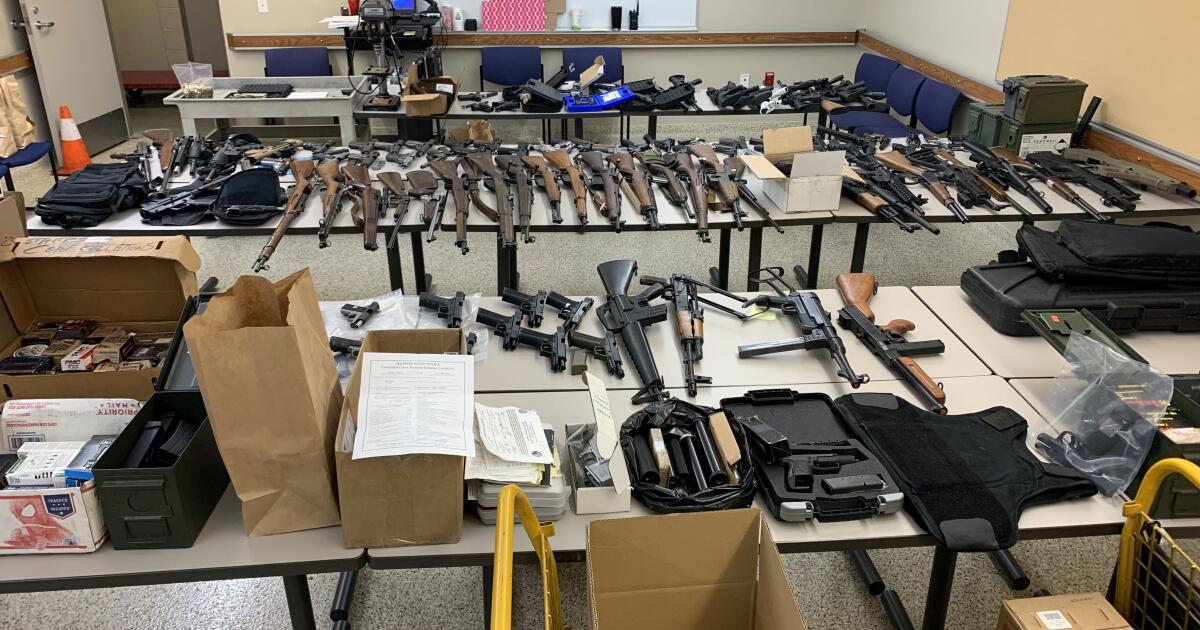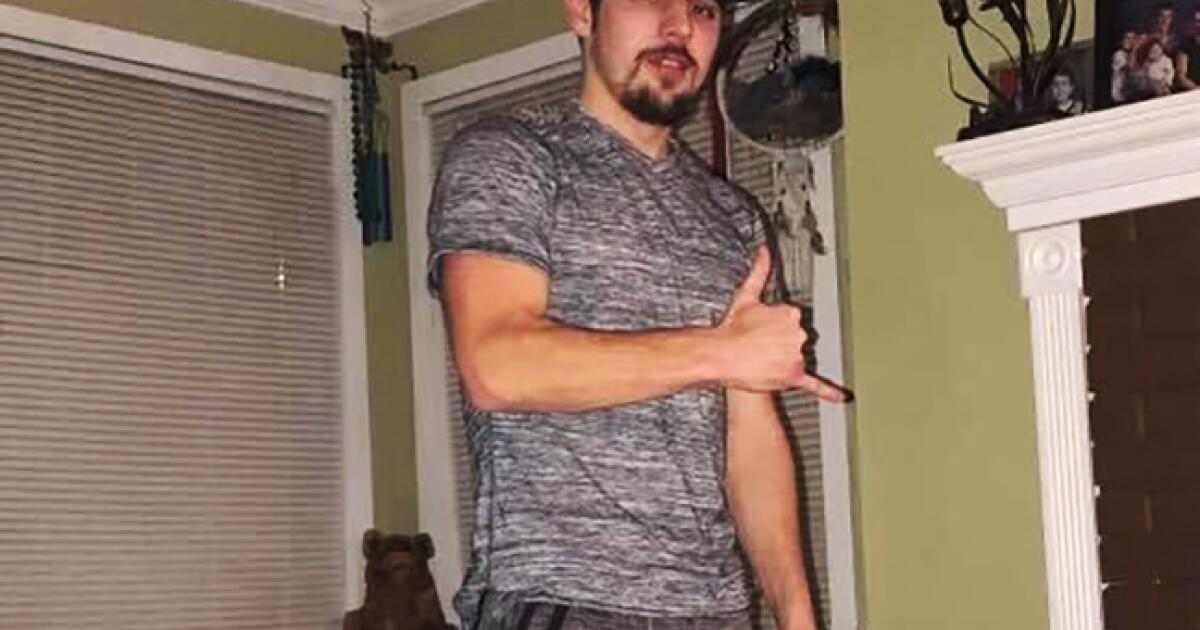Ben Jealous, the Sierra Club's first black executive director, was unable to attend a recent news conference in South Los Angeles, held in the shadow of the Martin Luther King Jr. monument at the Kenneth Hahn State Recreation Area.
But if he had, I suspect he would have told the same story he told me.
“Do you know the great actor Louis Gossett Jr.?” he asked. “My last year in the NAACP, at the 2013 Image Awards, he said to me, 'You know, Ben, I've been in this racial justice movement my whole life, but you know, sometimes, bro, I feel like we're fighting over who's in it.' first class. 'What we should be doing is looking out the window, because the plane has fallen like 20,000 feet in the last two minutes.'”
Jealous remembered being confused.
“He said, 'The planet is dying. It doesn't matter who is in first class on a dead planet. And that phrase has stuck with me for the last decade and I keep coming back to it.”
That's why, Jealous explained, he decided that his venerable environmental organization would be among the first to support a new AM radio station in Los Angeles in its campaign to elevate climate change and environmental justice as priorities for people of color.
Other sponsors of the $2 million campaign include the Los Angeles Department of Water and Power, Metro, CalTrans, the California Endowment and the California Community Foundation.
But in reality, it's the vision of Tavis Smiley, longtime radio host and founder of KBLA 1580, that could help more fully incorporate the voices of Black and Brown Americans, who are hardest hit by the climate crisis. , to political debates about how to solve it.
In that press conference that Jealous couldn't attend, Smiley even went so far as to connect the fight MLK waged for racial equality to the current fight for the future health of the planet.
“Weather is king,” Smiley declared with a smile. “See what I did there?”
While it's fun, I can understand why some people may see this as overkill. After all, Martin Luther King Jr. Day has always been a holiday dominated by debates about justice and freedom, and the barriers to both. Barriers of systemic racism that have left Black people on the lowest rungs of the socioeconomic ladder and, as such, with little energy to confront existential crises, because there are many immediate crises, such as housing discrimination and police brutality.
But like Gossett Jr., I'm starting to get the sense that simply waging all these immediate fights for racial justice is ultimately a bit like (to extend a bad analogy even further) rearranging the deck chairs on the Titanic.
Sure, it's important to fight the good fight against efforts to dismantle diversity, equity and inclusion programs, for example, and against banning books about Black history in public schools. But it is reasonable to wonder what good it will be to win those struggles if we fail to mitigate the upheaval of a rapidly changing climate that can bring misery to all of humanity.
We have all seen the worrying rise in extreme weather and the way it has paralyzed or, in some cases, decimated entire communities. Just this month, European Union climate scientists announced that 2023 was officially the hottest year on Earth on record, and as my Times colleague Hayley Smith reported, this year is likely to be even hotter.
“Our cities, our roads, our monuments, our farms – in practice, all human activities – have never had to cope with such a hot climate,” said EU chief Carlo Buontempo. Copernicus Climate Change Service, he told reporters. “There were simply no cities, no books, no agriculture, and no domesticated animals on this planet the last time the temperature was this high.”
On top of that, there are man-made environmental disasters today, from contaminated drinking water in Flint, Michigan, and right here in Compton, to poorly maintained levees that allowed massive flooding in the town of Pajaro, County Monterey.
As Mayor Karen Bass put it at the press conference: “We know that low-income and black neighborhoods are disproportionately harmed by toxic and air pollution. A few years ago, the leading cause of death for black babies was asthma, which was directly related to freeways and air pollution. So when we say disproportionately impacted, it's not just rhetoric.”
And yet, politicians rarely mention climate change or environmental justice as a true priority when speaking to people of color.
Take, for example, President Biden's speech earlier this month at Mother Emanuel AME Church, billed as an attempt to repair his relationship with Black voters amid declining poll numbers. He spent a mediocre 35 minutes in the pulpit of the historic church in Charleston, South Carolina.
Top issues included Donald Trump, the Civil War, white supremacy, the January 6 insurrection, high-speed internet access, prescription drug prices, housing and student loan debt. Finally, Biden went so far as to make a vague and uninspiring statement about how his administration is “producing clean energy” so people can “finally breathe clean air without leaving home.”
He talked about spending a childhood surrounded by air-polluting oil refineries in Claymont, Delaware.
“I grew up with asthma, and most of us did, because of the prevailing winds,” Biden said. “We were going, my mom was taking us to school in the morning… there was an oil stain on the windshield wiper. Because guess what? “It is all the fenced communities that are harmed.”
The president can certainly do better with his messaging.
Meanwhile, Gov. Gavin Newsom wants to cut $2.9 billion from California's climate programs to help close a huge budget deficit. Notably on the chopping block are several zero-emission vehicle programs, including delayed funding for the Clean Cars 4 All program that helps low-income residents.
Getting people of color to care about those things and demand more from Biden or Newsom will surely be a challenge. Many people don't have the luxury of thinking about problems beyond next week, let alone next year or decades.
But it's not impossible. Because with each passing year, each extreme weather event that devastates an already vulnerable community of color, and each generation that becomes more aware of the pollution that is ruining their quality of life, it becomes clearer that environmental justice is racial justice. .
“Poll after poll shows that more than three-quarters of us consider ourselves environmentalists,” Jealous said of black people. “What we've been doing wrong as a movement is not meeting people where they are.”

